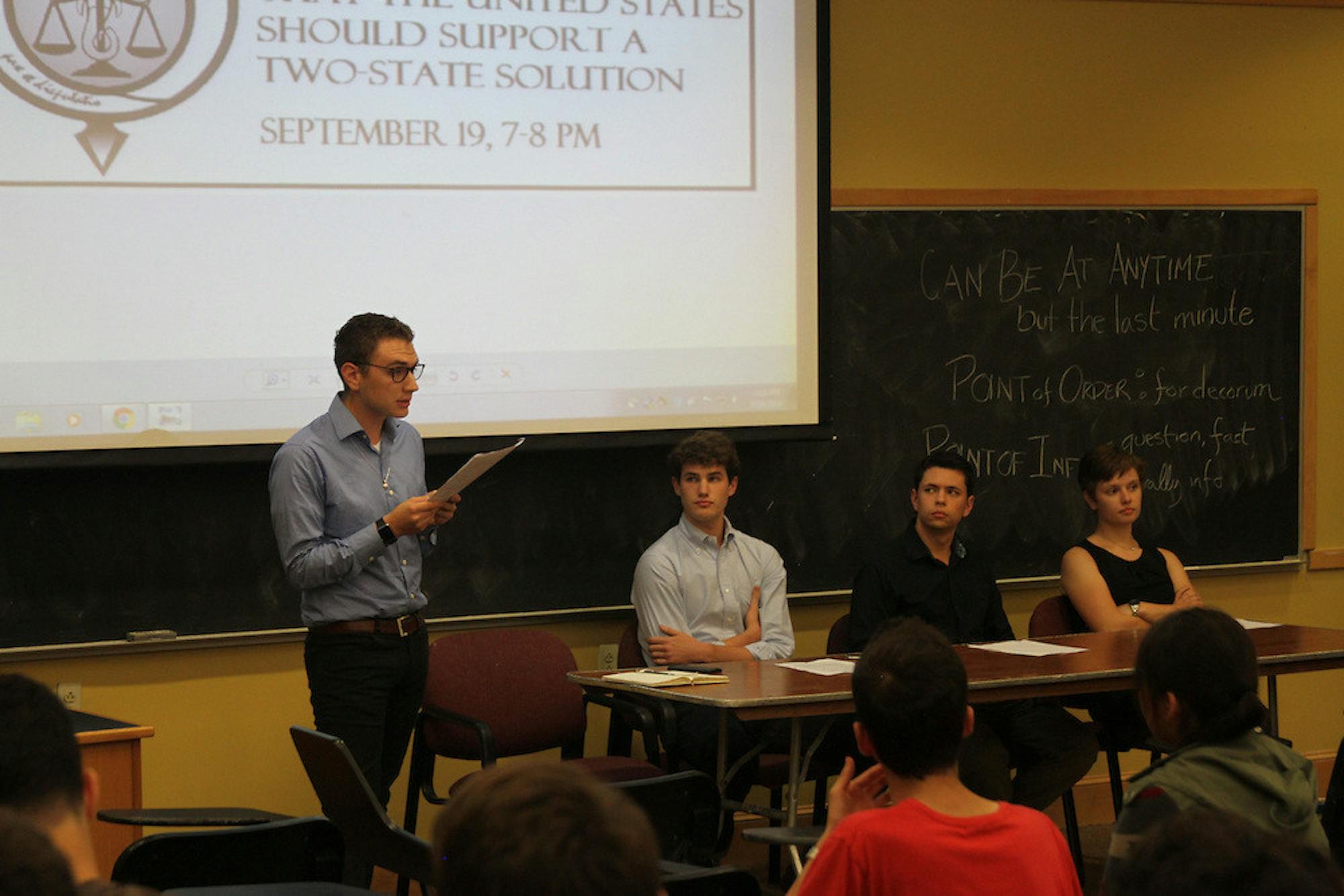Tufts Union Debate held its inaugural event yesterday in Braker 001 at 7 p.m. during which four students debated the motion, “This Campus Believes that the U.S. Should Support a Two-State Solution.” The event was attended by approximately 30 students.
The motion was debated by two pairs of students, one for the motion and the other against. Each pair began with seven-minute-long opening statements explaining their positions. Arguing for the motion were sophomore Andrew Goldblatt and senior Chad Kramer. Arguing against the motion were junior George Phillips and senior Darby Young.
Goldblatt opened the debate with a personal account from his time in the Palestinian territories.
“I walked by locked storefronts and sealed doors on a street that was, in the language of the Israeli military, ‘sanitized,’” Goldblatt said.
Phillips argued that the lack of a stable, unified Palestinian government made a two-state solution impossible.
“From top to bottom, Palestine’s political administration lacks the organization and the basic fundamentals of centralization needed to exist in a global world," Phillips said.
Once the opening statements had been presented, Debate Chair Nimarta Narang opened the floor to the audience and invited attendees to share their positions.
“That kind of ignores the entire fact that the Palestinian people don't want to be with the Israelis, and that they’ve been looking for self-determination,” audience member Noah Cohen said in response to Phillips’ argument.
During the closing arguments, Young challenged the debate’s motion directly.
“The [two-state solution] cannot – and should not – be addressed by an outside player with no stake in the outcome beyond personal gain,” Young said. “The U.S. should not support the two-state solution … because it is by no means in the position to support without exacerbating the issue and corrupting any progress towards peace.”
The debate was the first ever held by the Union, which is a newly-formed group that aims to promote respectful campus discourse. According to Narang, who co-founded the Union, the motion was chosen for its polarizing nature.
“We figured that this was a good debate to get people involved,” Narang said.
According to the polling results posted on the group's Facebook page after the event, the pre-debate numbers were 66 percent in favor of the motion, nine percent against the motion and 25 percent undecided about the motion. A second poll taken after the event revealed that 68 percent were in favor of the motion, 24 percent were against the motion and eight percent were neutral about the motion. The opposition was named the winner of the event, as the side gained the greatest percentage change.
Tufts Union Debate holds two-state solution debate






